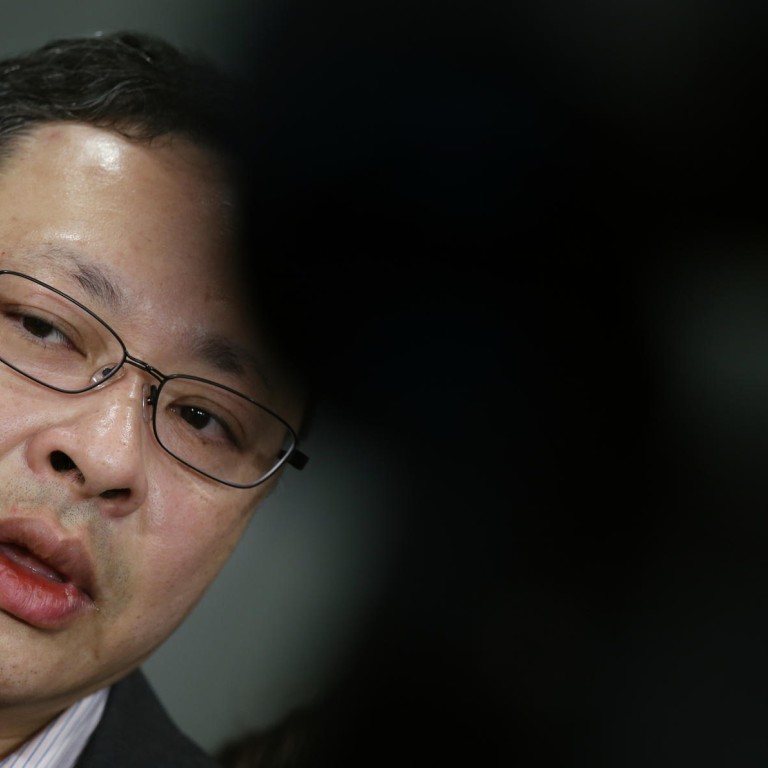
Occupy ask Carrie Lam why views of 62,000 are irrelevant to electoral reform
Occupy co-founder asks chief secretary to clarify why views expressed by 62,000 voters in 'referendum' are irrelevant to reform process
One of the founders of the Occupy Central movement has urged Chief Secretary Carrie Lam Cheng Yuet-ngor to clarify her dismissal of the results of its New Year's Day "referendum" on electoral reform - warning its blockade of roads in Central would be more likely to go ahead if the government refused to listen to public opinion.
Benny Tai Yiu-ting, an associate professor of law at the University of Hong Kong, hit back at Lam a day after she said the outcome of Wednesday's poll was irrelevant to the reform process.
Lam later said the government keeps an "open and inclusive attitude" to public opinion. "But we must also be pragmatic ... I am responsible for issuing a reminder when some opinion … could be lacking foundation in the Basic Law or the decision of the Standing Committee of the National People's Congress. That doesn't mean that we do not value public opinion," she said.
In the mock referendum organised by Occupy, some 62,000 citizens cast their votes, with 94 per cent of them saying the public should be allowed to nominate candidates for the 2017 chief executive election.
"Under Hong Kong law, we do not have legally binding referendums," Tai said after meeting pan-democratic legislators to update them on the movement's plans. "But [one] must consider that the voting results have indicated how at least 60,000 people see the chief executive election.
"[Lam] said: Let's talk and achieve universal suffrage. Is she now saying that the opinions expressed have no value? I hope she will clarify whether the government will just selectively listen to some views," the academic said.
Frederick Fung Kin-kee, who convened yesterday's meeting of pan-democratic legislators, shared Tai's view. "These were the views of 60,000 people. How can she still say the results have no reference value?" he asked.
Meanwhile, Secretary for Constitutional and Mainland Affairs Raymond Tam Chi-yuen was sceptical of a call by the student-led activist group Scholarism for five pan-democratic legislators to quit in order to trigger a de facto referendum on political reform. The camp tried a similar action in 2010, and the new plan has generated a tepid response from pan-democrats.
"More than a week ago, I saw a sign at a glassware shop, which read 'handle with care' because the products were fragile," Tam said. "Reaching consensus on constitutional reform is difficult to achieve. It is like fragile glassware, which can be broken by any reckless act. Therefore we have to handle it with care."
Only two of the pan-democratic parties contacted by the - People Power and the League of Social Democrats - have backed the student group's plan. Major pan-democratic parties have expressed reservations.
Tai said Occupy would not rule out supporting a resignation plan if it was deemed necessary.
But the movement was focusing on organising a poll in June which will allow the public to choose among different electoral reform proposals, he said.

